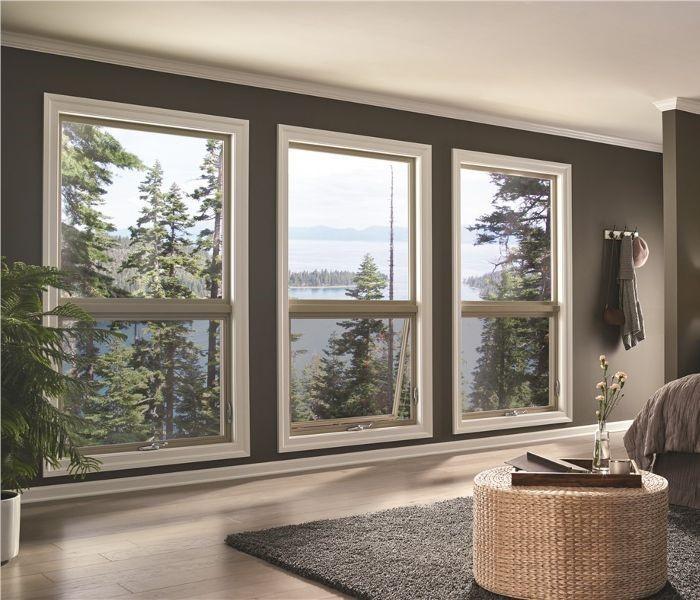Table of Contents
Have you ever paid attention to the windows in your home? If not, it’s time to start! Windows are among the biggest investments homeowners make in their homes, and they’re extremely important to the health and comfort of your family members year-round. If your windows are damaged or outdated, they could be negatively impacting your home’s comfort and energy efficiency; therefore, they should be replaced as soon as possible.
There are many red flags homeowners can look out for that indicate their windows are in need of replacement, some of which you may not have thought about before. If after reading this article you realize you’re in need of new windows ASAP, be sure to visit our company website at https://fortworthhomewindowreplacement.com/
Leaky windows
If you’re noticing that a lot of your home’s energy is escaping through its windows, then it may be time to start shopping for home window replacement. While leaks can occur at any point in your window’s life cycle, they generally occur early on because most windows come with a sealant already applied.
Over time, however, seals can break down, and you may start noticing cold drafts or a musty smell. A professional home energy audit can help you identify where your leaks are occurring so that you can pinpoint which windows need to be replaced. A good home energy auditor will also be able to help you figure out how to remedy current leaks by swapping your windows with high-quality replacements.
The sooner you act on leaks, however, the less energy you’ll waste and the smaller your overall home window replacement project will be. Plus, new windows are designed to keep more cool air inside during summer months and keep more cold air out during winter—which saves you even more money.
Condensation on windows
Condensation occurs when warm air touches a cold surface. If you notice condensation on your windows, it’s likely that you need a new home window replacement. Condensation can also be caused by drafts or inconsistent temperatures within your home. It’s important to fix any leaks that could be causing condensation, as well as adjust your thermostat to make sure you’re keeping an even temperature throughout your home.
Over time, a poor quality window will show signs of wear and tear. Old windows may begin to get stuck, which can cause moisture buildup. When you see condensation on your windows, it’s an indication that your windows are having trouble keeping up with temperature fluctuations. If left untreated, moisture build-up can lead to mold or mildew growth inside your home, which could affect your health and make it harder for you to breathe at night as air doesn’t flow as freely through sealed windows.
Stained wood around windows
Wood rot is a telltale sign that your windows may need replacement. When wood begins to rot around windows, it’s because moisture has been able to seep into window frames and cause deterioration. If you’re not sure about the integrity of your windows and their ability to hold water back from your house, consider hiring a contractor for an inspection.
Sometimes, rot can be prevented by caulking your windows. Be sure to check for water leaks and worn window seals so you can fix any problems before it’s too late. If you notice any signs of wood rot around your windows, contact a local contractor right away to make sure your house is safe. A professional home remodeling contractor who can handle all aspects of home window replacement from start to finish with an expectation of fast, affordable solutions with high-quality products.
Broken windows
One of your first steps to determining if you need home window replacement is to examine all of your windows. Look for any broken or cracked panes. If a pane has a crack that extends beyond its perimeter, it’s best to replace it as soon as possible, because those cracks will likely grow and result in bigger problems later on.
It may seem too obvious, but some homeowners just live with a broken window. It’s easier to forget about it or brush it off than to deal with replacing it. But even small cracks can result in big energy loss through your windows, so if you notice one that can’t be overlooked any longer, make sure to have them replaced as soon as possible.
Warping windows
Moisture is a wood window’s enemy, and left alone, it can wreak havoc on your home’s wooden windows. The moisture makes them swell, warp and deteriorate. Warped windows don’t fit into frames like they used to and when you try to open or close them, you feel some serious resistance. They may even begin cracking or breaking along their edges as their joinery—the structure that holds each piece together—begins to fall apart.
If you notice your windows starting to bend, bow or pull away from their frames, it’s likely that they’re warping. Even if you can’t see them moving out of place, we recommend that you hire a window contractor to replace your windows before they become warped beyond repair. Contractors can also determine if your moisture issues stem from indoor or outdoor causes.
When you’re ready to replace windows
From an aesthetic standpoint, a home’s windows are often one of its most important features. Although adding new windows to your home can add value and curb appeal, not replacing them when necessary can have lasting damage on your property. If you notice any of these 5 signs that it may be time for window replacement in Texas, it’s best to contact an expert to help determine which type of window is right for your property.
Final words
Unless a window is completely shattered, homeowners tend to replace all their windows at once. This can take years off of your energy bills and put new life into your home’s exterior appearance. The average cost to replace a window is between $300 and $2,100. However, if you wait too long before replacing one of your windows you could end up paying even more down the road to fix other parts on your house that may have been damaged because they weren’t protected by proper working windows. Most importantly though, it will most likely be an eyesore for any potential buyer when looking at purchasing your home.




